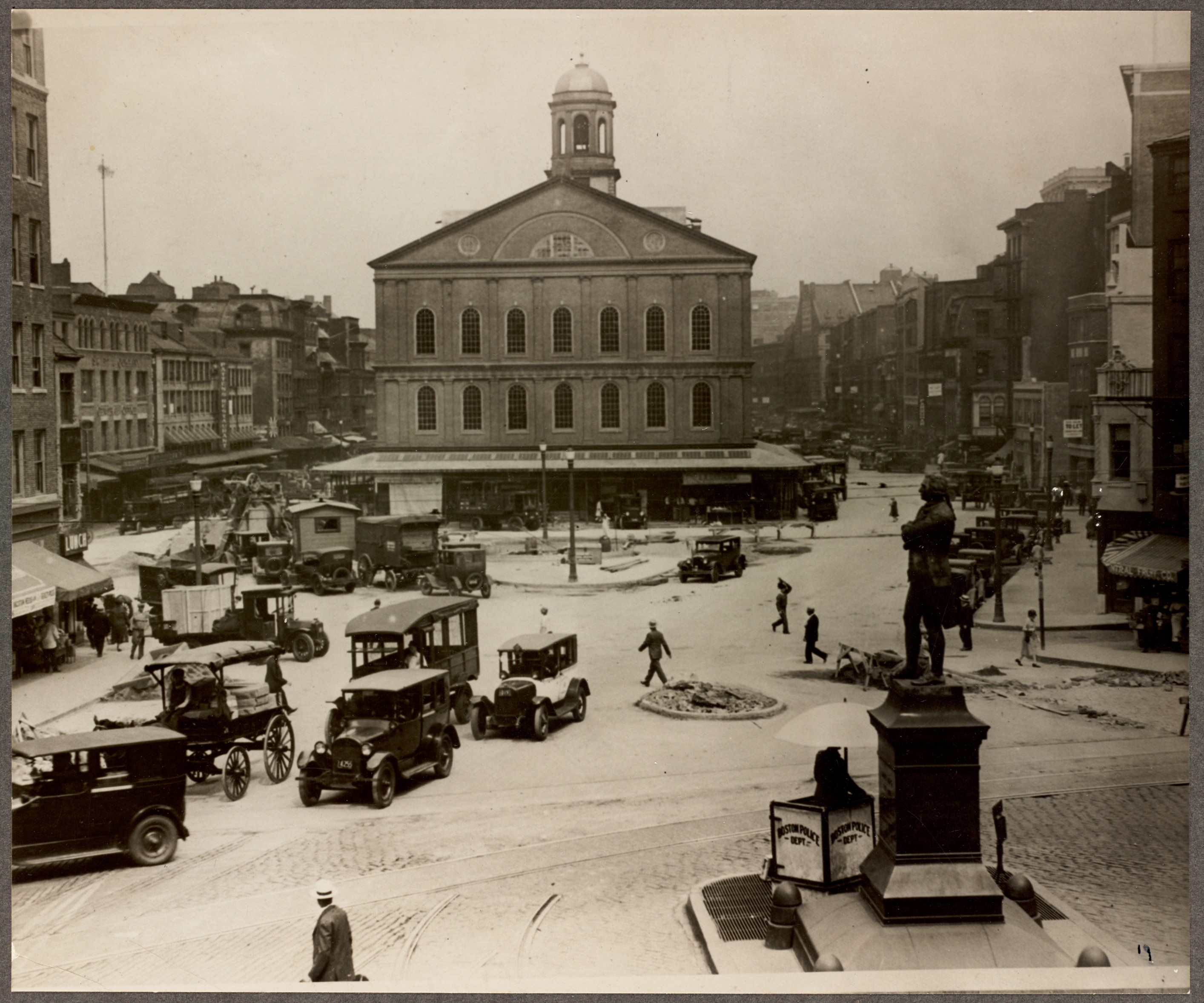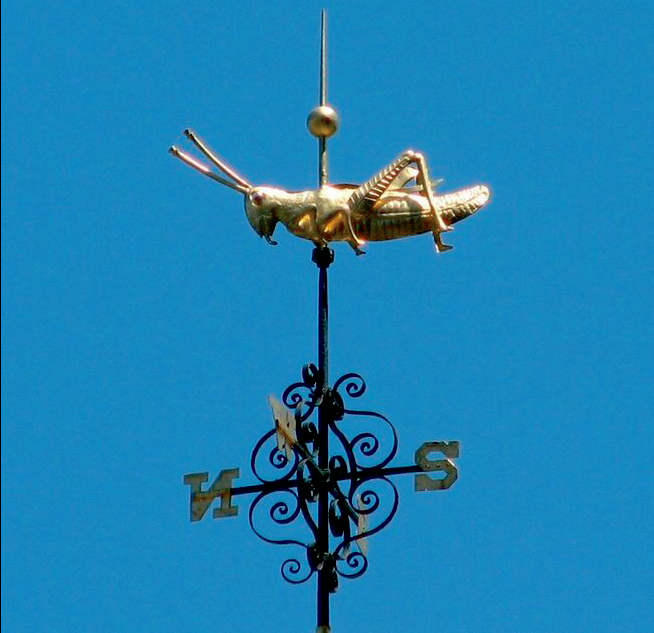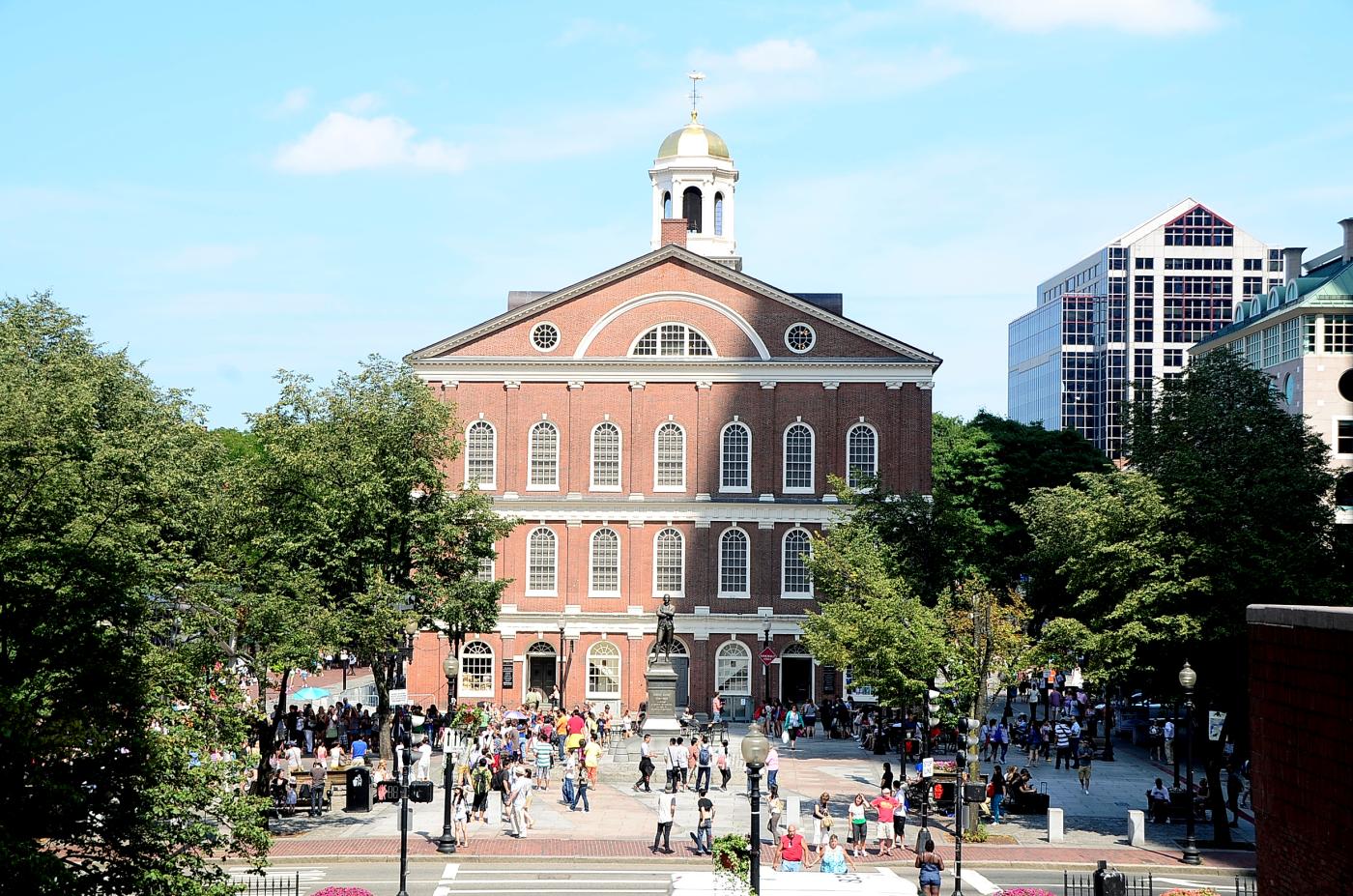Often referred to as "the home of free speech" and the "Cradle of Liberty," Faneuil Hall hosted America's first Town Meeting. The Hall's vital role in revolutionary politics had not been part of its original plans, but it became home to an intricate collection of events that shaped the nation's history.
Visiting Faneuil Hall
1 Faneuil Hall Sq.
Boston, MA 02109
Visitor Services Managed by the National Park Service
Boston National Historical Park
Owned and operated by the City of Boston.
Access Information
- Wheelchair Accessible
- Restrooms
Featured Photo of Tour Site

Faneuil Hall
Built as a center of commerce in 1741, Faneuil Hall is where the Sons of Liberty proclaimed their dissent against Royal oppression. Faneuil Hall has served as an open forum meeting hall and marketplace for more than 270 years and has continued to provide a stage for debate on the most consequential issues of the day. It was at Faneuil Hall in 1764 that Americans first protested against the Sugar Act and the Stamp Act, setting the doctrine that would come to be known as "no taxation without representation." Gatherings to protest the Townshend Acts, the Redcoat occupation, and the Tea Act would follow. The most famous weathervane in Boston is Faneuil Hall’s golden grasshopper created by acclaimed craftsman Shem Drowne, whose weathervane also tops the Old North  Church. Tradition has it that the weathervane was used during the War of 1812 to spot spies. Anyone who did not know the answer to the question "What is on top of Faneuil Hall?" in those days invited suspicion. Frequent naturalization ceremonies are held in the Great Hall at Faneuil Hall to swear in between 300 to 500 new citizens as they take the Oath of Allegiance. Quincy Center and Faneuil Hall Marketplace are located adjacent to historic Faneuil Hall and offers popular shopping and dining destinations in restored 19th-century buildings.
Church. Tradition has it that the weathervane was used during the War of 1812 to spot spies. Anyone who did not know the answer to the question "What is on top of Faneuil Hall?" in those days invited suspicion. Frequent naturalization ceremonies are held in the Great Hall at Faneuil Hall to swear in between 300 to 500 new citizens as they take the Oath of Allegiance. Quincy Center and Faneuil Hall Marketplace are located adjacent to historic Faneuil Hall and offers popular shopping and dining destinations in restored 19th-century buildings.
Additional Resources
Ancient & Honorable Artillery Company Museum and Armory
Printing Office of Edes & Gill
